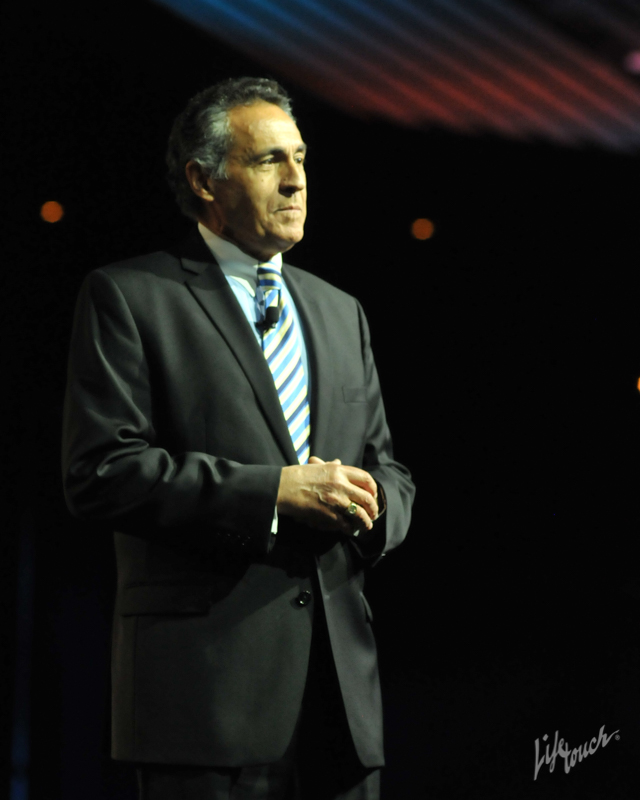Dan Domenech elicited hearty applause from the 1st General Session crowd at AASA’s national conference Thursday whenever he referenced the harm public schools would face from privatization waged by the federal government.
In his 20-minute address, Domenech highlighted the new reality that public school leaders were now confronting under President Trump’s administration.
He told the audience that he and Noelle Ellerson Ng, who heads up the association’s public policy team, had met privately with Education Secretary Betsy DeVos in her office two weeks ago. He said they agreed on many goals for the schools but radically differed when it came to the use of public dollars to support the education of children in non-public schools and online programs.
Domenech referred to a letter he sent to President Trump in which he acknowledged the administration’s ambition to expand private school vouchers to students. “However, we urged him to consider the practical and financial implications of redirecting current federal K-12 funding away from the public school system,” he said, noting 50.4 million students attend public schools in the United States.
Elaborating on this point, Domenech said: “Even if vouchers were adopted widely as he proposes, public education would remain our primary system. Moreover, voucher programs are an ineffective and damaging education policy. Study after study has shown that private school vouchers do not improve student achievement or provide greater opportunities for the low-income students they purport to serve. Private voucher schools do not provide the same rights and protections to students as public schools, such as those in Titles VI and IX of the Civil Rights Act, the Individuals with Disabilities Education Act, Title II of the Americans with Disabilities Act, and Every Student Succeeds Act.”
He criticized private school voucher programs for failing to offer real choices “as most state-voucher systems allow private schools to reject students with vouchers for a variety of reasons, ranging from disability, disciplinary history, English proficiency to ability to pay. Private school vouchers also do not save taxpayer money.”
Domenech added: “In voucher programs, the public schools from which students leave for private voucher schools are spread throughout a school district. The reduction in students from each public school, therefore, is usually negligible and does not decrease operating costs of those public schools. That is one of the reasons why some voucher programs have resulted in multi-million dollar deficits and tax increases.”
He argued that any entity receiving public money ought to face “the same transparency, reporting and accountability requirements.”
He pledged that AASA, with support from its members, will protect the interest of students and “ensure that public education is not subject to privatization attempts that will drain much needed dollars from school district budgets.”
(By Jay P. Goldman, editor of Conference Daily Online)


